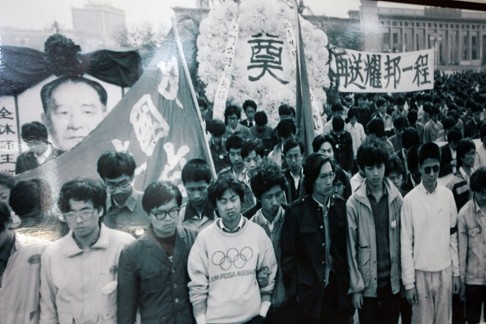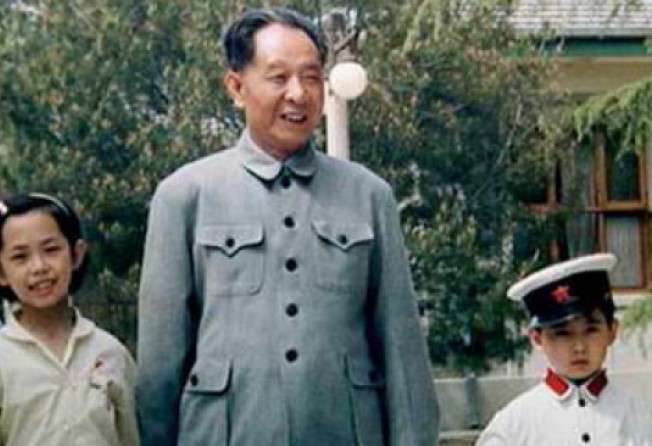
Chinese President Xi Jinping pays tribute at centenary of late reformist leader Hu Yaobang
Xi gives speech at event honouring purged liberal party chief, whose 1989 death triggered widespread mourning that transformed into the Tiananmen pro-democracy movement

China marked the centenary of the birth of late reformist leader Hu Yaobang on Friday with an unusually high-profile official ceremony attended by the Communist Party’s seven most powerful men, including President Xi Jinping and Premier Li Keqiang .
Hu, a liberal leader who steered China’s political and economic reform in the aftermath of the Cultural Revolution, was purged in 1987 for tolerating “bourgeois liberalisation”. The popular leader’s death in 1989 sparked the Tiananmen pro-democracy movement and his name remained taboo in state media for years.
At yesterday’s ceremony, Xi paid tribute to the late party chief, calling him “a time-tested loyal Communist fighter and a great proletarian revolutionist”, according to CCTV. The assessment was the same as that in his official obituary and one in a 2005 ceremony at the 90th anniversary of Hu’s birth.
Xi said the party was commemorating Hu for his “firm belief, idealism and his high morals”, stressing that party members must also have a strong and unshakable belief in communism and stick to party discipline, the state broadcaster reported.
The atmosphere at the ceremony held at Beijing’s Great Hall of the People was “very, very moving”, said a source close to the family, who spoke on condition of anonymity.
The attendance by Xi and the rest of the six members of the Politburo Standing Committee – the country’s highest decision-making body – indicated the importance attached to the event by the party. Other remembrance activities will take place in Hu’s hometown in Liuyang , Hunan province, on Monday.
Veteran liberal party elder Du Daozheng, who used to work under Hu, said he was surprised by the scale and level of yesterday’s commemoration.
Du said the praise for Hu was a tribute to and endorsement of the “opening and reform” era led by paramount leader Deng Xiaoping , Hu and former liberal party chief Zhao Ziyang and signalled the leadership’s determination to press on with reform. Political observers say the party is facing many obstacles to its military and economic reform.

Du said the events would also help counter the conservative political atmosphere. “It is a full endorsement [of the reform era] and it is a strong hit-back against the extreme left, wrong trends in society,” Du said, referring to the recent tightening of ideology and growing restrictions on freedom of expression and the press.
Analysts say the party is commemorating Hu in such a high-profile way so it can use the popular leader’s good image to bolster the present regime’s reform direction and crackdown on corruption.
“They want to utilise Hu to give a flavour of reform to its policies,” Baptist University political scientist Jean-Pierre Cabestan said. “It’s using Hu to legitimise its own policies but that doesn’t mean they will push the policies that Hu has pushed for.”
The cases where people were wrongly and unjustly accused must be corrected as quickly as possible
Hu’s liberal approach is in stark contrast to Xi’s style. Analysts say that while Hu was known for his respect for citizens’ rights, Xi’s rule has overseen a revival of Maoism, and an escalation of crackdowns on government critics.
But the events did not amount to a formal reversal of the official verdict in 1987 that he had made “grave mistakes” for tolerating “bourgeois liberalisation”, analysts said. An official rehabilitation of his name would amount to an admission that Deng was wrong to topple him and the “political cost for changing the verdict would be too high”, Cabestan said.
Chen Daoyin, a political scientist at Shanghai University of Political Science and Law, said the authorities wanted to control the perception of Hu, carefully avoiding references to his political tolerance and the pro-democracy movement sparked by his death. “They avoid ‘negative’ references … because it would cause upheavals,” Chen said.